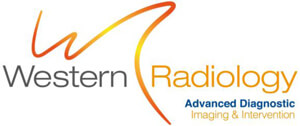CT Coronary Angiogram
CT Coronary Angiogram (CTCA) is a non-invasive diagnostic test designed to determine whether symptoms (commonly chest pain, also called angina) experienced by a patient is as a result of obstructive heart disease. Obstructive heart disease or Coronary Artery Disease (CAD) can be visualised and diagnosed in 3D by the use of CTCA. This is commonly shown as a narrowing or calcification of the coronary arteries that restricts blood flow to the heart. The high degree of sensitivity of CTCA enables our cardiologists to determine if coronary artery disease is implicated in your symptoms.
CAD can arise from a number of risk and lifestyle factors such as high cholesterol, smoking, hypertension, diabetes and family history of these and heart troubles.
CTCA is also often used in post-operative monitoring of heart procedures such as coronary artery bypass grafting and stenting.

Preparing for a CT Coronary Angiogram
For the most optimal and clearest scan images it is important to be relaxed and having as low of a heart rate as possible prior to coming in for your scan. It is therefore important that patients follow these guidelines on the day of their scan. We ask patients not to consume any tea (including herbal teas), coffee, cola, chocolate or other stimulants before the procedure. It is also important that you do not do any activities that will raise your heart rate significantly, this include vigorous exercise or strenuous activities. Our reception team will ask you a series of questions as part of the bookings process and ensure your individual circumstances accounted for.

Related Information
You will be asked to arrive 30 minutes prior to your examination for an assessment prior to the scan. During this assessment a nurse or a radiographer will be checking your heart rate and blood pressure to ensure your heart rate is adequately slow enough for the purpose of the scan. In the event that your heart rate is not slow enough, you may be required to take some medication (beta-blockers) that will assist in this process. Our nursing and technical staff will also prepare you for the scan by inserting a cannula into your arm, which will be used at the time of scan to administer contrast fluid. This contrast fluid will assist in highlighting the arteries surrounding the heart. To maintain a low heart rate, beta-blockers may be administered (generally taken orally) and sometimes via IV at the time of the scan. Patients will also have ECG monitors placed on the chest to monitor heart rate during their time in the CT suite. While the scan itself may only take 15 minutes or so, patients can expect to be in clinic for around 90 minutes plus or minus half an hour, depending on heart rate. Most all patients can return to normal activities following the scan.
Your individual circumstances are taken in to account and the scan reported by our expert cardiologist. Our radiologists also report the extra-cardiac findings (the surrounding thoracic cavity), so reports are very thorough. Results and images are delivered electronically to your referring physician typically within 24 – 48 hours of your scan.
Western Radiology Claremont – 1/278 Stirling Hwy, Claremont WA 6010
Western Radiology Madeley – Unit 1, 210 Wanneroo Rd, Madeley WA 6065
Western Radiology Cockburn Central – Unit 2, 810 North Lake Road, Cockburn Central WA 6164
Western Radiology Morley – 133 Russell St, Morley WA 6062
Western Radiology Clarkson – 10/61 Key Largo Drive, Clarkson WA 6030
Western Radiology Canning Vale – Unit 1, 410 Ranford Road, Canning Vale WA 6155
Western Radiology Mandurah – 73-77 Reserve Dr, Mandurah WA 6210
*If your scan is not listed, please phone reception.
- Please avoid taking Viagra (Sildenafil), Cialis (Tadalafil) or similar medications for at least 48hrs prior if possible. If you have already taken them in the past day or two or are required to take them regularly for health conditions, please let the radiographer know on the day so that they can alter the medications they give during the scan.
- Please also let us know beforehand if you take a drug called Verapamil (also called Cordilox, Isoptin or Anpec).
Find a Clinic
Opening hours and clinic locations
around Perth
